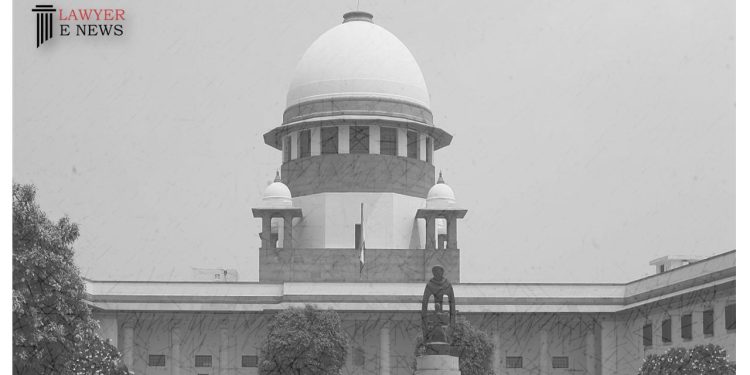Supreme Court Upholds Eviction Order under Tamil Nadu Cultivating Tenants Protection Act

In a significant ruling, a division bench of the High Court delivered a judgment upholding an eviction order passed under the provisions of the Tamil Nadu Cultivating Tenants Protection Act. The judgment, rendered on May 11, 2023, by Justice Krishna Murari and Justice Ahsanuddin Amanullah, sheds light on the interpretation and application of Sections 3 and 4 of the Act.
The case revolved around a dispute between the appellants and respondent no.1 regarding the non-payment of lease rent for multiple years. The Revenue Court had issued an order on February 4, 2019, directing the appellants to pay the lease rent within two months. However, the appellants failed to comply with the order, leading to the initiation of eviction proceedings by respondent no.1.
The appellants contended that the provisions of Sections 3 and 4 of the Act protected them from eviction. They argued that the late payment of rent and the subsequent deposit made after several months were justified due to the COVID-19 pandemic. They also relied on certain judgments to support their case.
The division bench meticulously analyzed the contentions put forth by both parties. It noted that the Revenue Court’s order dated February 4, 2019, had never been challenged by the appellants, establishing the undisputed tenant-landlord relationship. The court emphasized that the appellants’ failure to comply with the order within the stipulated timeframe, as well as their reliance on a legal notice to delay payment, did not absolve them of their legal obligation to pay the lease amount.
Examining the provisions of Sections 3 and 4 of the Act, the bench concluded that late payment of rent was a valid ground for eviction under Section 3, and restoration of possession was limited to specific circumstances outlined in Section 4. The court held that the default by the appellants spanned multiple years, making the two-month timeframe given for compliance reasonable.
Addressing the appellants’ argument related to the COVID-19 pandemic, the court observed that the payment made by them after four months of receiving the order showed that there was no special handicap caused by the pandemic preventing timely compliance.
The judgment also discussed the scope of the High Court’s powers under Article 227 of the Constitution, emphasizing that it should only be invoked in cases of serious dereliction of duty or flagrant violation of fundamental principles of law or justice.
Ultimately, the division bench found no merit in the appeal and dismissed it, upholding the eviction order passed by the Revenue Court. The interim order granted on October 31, 2022, was vacated. The court highlighted that the judgment and the orders passed by the Revenue Court were legally sound and free from any infirmity.
Date: May 11, 2023
CHINNAMMAL (DEAD) THR. LRS. vs R. EKNATH & ANR.






